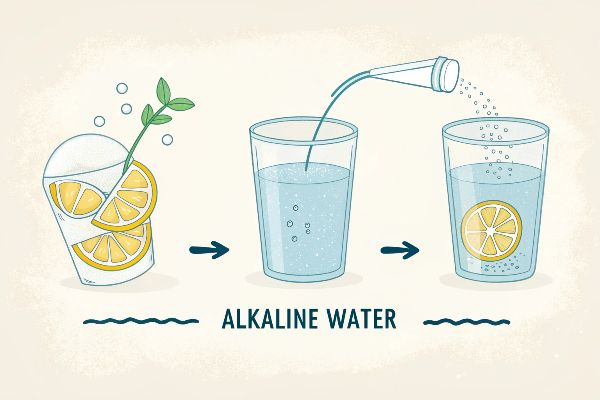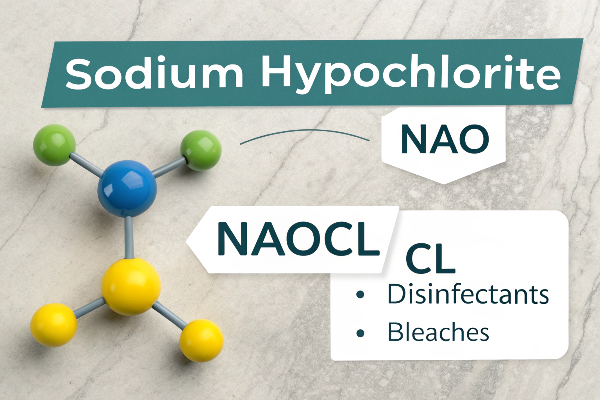Struggling to understand the hype around titanium? Feeling lost in a sea of technical jargon and confusing applications? You’re not alone.
Titanium is primarily known for its exceptional strength-to-weight ratio and corrosion resistance, making it ideal for high-performance applications in aerospace, medical implants, and high-end consumer goods.

But that’s just scratching the surface. Let’s dive into the fascinating world of titanium and uncover its many uses, properties, and why it’s such a coveted material. I’ll break down everything in plain English, and believe me by the end you will get it.
What is the Main Use of Titanium?
Feeling overwhelmed by the sheer number of titanium applications? Wondering where it truly shines? Don’t worry, it’s a common question.
The aerospace industry1 is the largest consumer of titanium, primarily using it in aircraft engines and structural components due to its lightweight strength and high-temperature resistance.

While aerospace dominates, titanium’s versatility shines across diverse fields. Let’s explore some key areas:
Industrial Applications
- Chemical Processing: Titanium’s incredible corrosion resistance2 makes it perfect for handling aggressive chemicals. I think it can be used in pipes, reactors, and heat exchangers.
- Marine Environments: Saltwater is notoriously corrosive, but titanium stands strong. I have read some articles saying it’s used in ship hulls, propeller shafts, and offshore oil rigs.
- Power Generation: Titanium’s high-temperature strength and corrosion resistance are valued in power plant components. I believe it is used in condensers and turbine blades.
Consumer Goods
- Sporting Equipment3: Think lightweight and durable – golf clubs, tennis rackets, bicycle frames. I have personally used the golf clubs, very light.
- Jewelry4: Titanium’s hypoallergenic nature and ability to be colored make it a popular choice for rings, necklaces, and watches. I had one, and it’s very comfortable.
- Electronics5: Some high-end laptops and smartphones use titanium for its strength and premium feel. I think some new phones use it.
Let me try to summarize what I just said in a simple table:
| Industry | Application | Reason |
|---|---|---|
| Chemical Processing | Pipes, Reactors, Heat Exchangers | Exceptional corrosion resistance to aggressive chemicals |
| Marine | Ship Hulls, Propeller Shafts | Resistance to saltwater corrosion |
| Power Generation | Condensers, Turbine Blades | High-temperature strength and corrosion resistance |
| Sporting Goods | Golf Clubs, Bicycle Frames | Lightweight and durable |
| Jewelry | Rings, Necklaces, Watches | Hypoallergenic and can be colored |
| Electronics | Laptops, Smartphones | Strength and premium feel |
What Does Titanium Do in the Human Body?
Worried about metal implants reacting with your body? Concerned about long-term compatibility? These are valid fears, and that’s where titanium comes in.
Titanium is biocompatible6, meaning it’s non-toxic and not rejected by the body. This, combined with its strength, makes it ideal for medical implants like joint replacements and dental implants.

Dive Deeper:
Titanium’s biocompatibility is truly remarkable. But how does it work? Let’s break it down:
Osseointegration: The Key to Success
- Bonding with Bone: Titanium has a unique ability to fuse directly with bone tissue, a process called osseointegration7. I think this creates a strong and stable bond, unlike some other metals.
- No Immune Response: The body doesn’t recognize titanium as a foreign substance, minimizing the risk of inflammation or rejection. I think it is very important for successful implants.
- Long-Term Stability: Once integrated, titanium implants can last for decades, providing long-term relief and improved mobility. I have heard many stories from my friends.
Beyond Implants: Other Medical Uses
- Surgical Instruments8: Titanium’s strength, lightness, and corrosion resistance (even to bodily fluids) make it suitable for surgical tools.
- Cardiovascular Devices9: Some stents and heart valve components utilize titanium for its biocompatibility and durability.
Here’s a breakdown in a simple table:
| Application | Benefit | Explanation |
|---|---|---|
| Joint Replacements | Long-term stability, reduced pain | Osseointegration allows the implant to fuse with bone. |
| Dental Implants | Natural-feeling, durable tooth replacement | Titanium posts integrate with the jawbone, providing a strong foundation for artificial teeth. |
| Surgical Instruments | Lightweight, strong, corrosion-resistant | Easy to handle, durable, and resistant to sterilization and bodily fluids. |
Is Titanium Stronger Than Steel?
Heard conflicting claims about titanium and steel? Confused about which metal reigns supreme? It’s a common debate, so let’s settle it.
While pure titanium has a lower tensile strength10 than some high-strength steels, titanium alloys11 are significantly stronger and much lighter, giving them a superior strength-to-weight ratio12.

The "stronger" question isn’t straightforward. It depends on what type of "strong" we’re talking about. I think there are several factors at play.
Tensile Strength vs. Strength-to-Weight Ratio
- Tensile Strength: This measures how much force a material can withstand before breaking. Some steels have higher tensile strength than pure titanium.
- Strength-to-Weight Ratio: This is where titanium shines. It’s much less dense than steel, meaning you get comparable strength with significantly less weight. I believe that is why it is so good for planes.
Titanium Alloys: The Game Changer
- Mixing for Strength: Pure titanium is relatively soft. But when alloyed with other elements (like aluminum and vanadium), its strength increases dramatically.
- Exceeding Steel: Many titanium alloys surpass steel in both tensile strength and strength-to-weight ratio13. This is why they’re used in demanding applications.
Let’s simplify this with a table:
| Property | Pure Titanium | Steel | Titanium Alloys |
|---|---|---|---|
| Tensile Strength | Lower than some steel | Varies, can be high | Higher than many steels |
| Density | Low | High | Low |
| Strength-to-Weight Ratio | High | Lower | Very High |
What Household Items are Titanium?
Thinking titanium is only for rockets and medical implants? Surprised to hear it might be in your home already? You might be closer to titanium than you think!
While not as common as materials like plastic or aluminum, titanium can be found in some high-end household items such as sporting equipment (golf clubs, bicycle frames), jewelry, and some premium cookware.

You won’t find titanium in every spoon or chair, but it’s becoming increasingly prevalent in certain niches. I can explain.
Sporting Goods: Performance Boost
- Golf Clubs: Titanium club heads are lighter and stronger, allowing for faster swing speeds and greater distance. I used them, and they feel different.
- Bicycle Frames: Titanium frames offer a unique combination of lightness, strength, and a comfortable ride. I know some of my friends really love them.
- Tennis Rackets: Some high-end rackets use titanium for added stiffness and power.
Jewelry: Beauty and Biocompatibility
- Rings and Bracelets: Titanium’s hypoallergenic nature makes it perfect for people with sensitive skin. It’s also lightweight and can be colored.
- Watches: Titanium watch cases are strong, lightweight, and corrosion-resistant.
Cookware: The Premium Choice
- Pots and Pans: Some high-end cookware uses titanium-reinforced coatings for increased durability and scratch resistance. I saw them but I never used.
- Cutlery: Titanium knives are lightweight, strong, and hold an edge well.
Here is a simple table:
| Item | Benefit | Reason |
|---|---|---|
| Golf Clubs | Increased swing speed and distance | Lighter and stronger than steel |
| Bicycle Frames | Lightweight, strong, and comfortable ride | Superior strength-to-weight ratio compared to steel or aluminum |
| Jewelry | Hypoallergenic, lightweight, and can be colored | Doesn’t react with skin, comfortable to wear, and aesthetically versatile |
| Cookware | Durable and scratch-resistant | Titanium-reinforced coatings provide enhanced performance |
Why is Titanium So Valuable?
Wondering why titanium costs more than common metals? Puzzled by its premium price tag? It’s not just hype; there are solid reasons behind it.
Titanium’s value stems from its relatively high extraction and processing costs14, combined with its exceptional properties and demand in specialized industries.

It’s not just about scarcity; it’s about the entire process, from digging it up to shaping it into usable forms. I have done some research on this.
Difficult Extraction and Processing
-
Reactive Nature: Titanium readily reacts with oxygen and other elements at high temperatures, making extraction and refining complex and energy-intensive.
-
The Kroll Process15: The most common method for producing titanium is the Kroll process, a multi-stage, batch process that’s expensive and time-consuming. I heard that this process is very complicated.
-
Machining Challenges16: Titanium is harder to machine than steel, requiring specialized tools and techniques, adding to the cost.
High Demand in Specialized Industries
-
Aerospace: The aerospace industry’s reliance on titanium for its lightweight strength and high-temperature resistance drives significant demand.
-
Medical Implants: The biocompatibility and longevity of titanium implants create a consistent need in the medical field.
-
Limited Supply: Compared to metals like iron or aluminum, titanium is less abundant, further contributing to its value.
Here’s a breakdown in a table:
| Factor | Explanation |
|---|---|
| Difficult Extraction17 | Reactive nature requires complex and energy-intensive processes like the Kroll process. |
| Machining Challenges | Harder to machine than steel, requiring specialized tools and techniques. |
| High Demand (Aerospace)18 | Crucial for lightweight, strong, and heat-resistant aircraft components. |
| High Demand (Medical)19 | Biocompatibility and longevity make it essential for implants. |
| Relatively Limited Supply | Less abundant than common metals like iron or aluminum. |
Conclusion
Titanium, with its unique properties and diverse applications, is a truly remarkable metal. From aerospace to medical implants, and even some household items, its strength, lightness, and biocompatibility make it a valuable resource in our modern world. I hope this help.
-
Explore how titanium’s unique properties make it essential in aerospace applications, enhancing performance and safety. ↩
-
Discover the science behind titanium’s corrosion resistance and its importance in various industries, especially chemical processing. ↩
-
Explore the advantages of lightweight and durable sporting equipment to enhance your performance and enjoyment in sports. ↩
-
Discover why titanium is favored for hypoallergenic jewelry, ensuring comfort and style without irritation. ↩
-
Learn how titanium enhances the quality and durability of high-end electronics, making them more reliable and premium. ↩
-
Understanding biocompatibility is crucial for anyone considering medical implants, as it ensures safety and effectiveness. ↩
-
Exploring osseointegration will provide insights into how titanium implants bond with bone, ensuring their success and longevity. ↩
-
Explore how titanium’s unique properties enhance the performance and safety of surgical tools. ↩
-
Learn about the critical role titanium plays in the design and functionality of life-saving cardiovascular devices. ↩
-
Titanium alloys are key to understanding the advantages of titanium. This resource will explain their properties and applications. ↩
-
Exploring the strength-to-weight ratio will reveal why titanium is favored in aerospace applications. This link provides valuable insights. ↩
-
Exploring the strength-to-weight ratio helps in understanding material choices in aerospace, leading to better design and efficiency. ↩
-
The strength-to-weight ratio is vital for industries like aerospace and automotive. Discover more about how titanium alloys excel in this area. ↩
-
Understanding the costs involved in titanium extraction can provide insights into its market value and applications. ↩
-
Exploring the Kroll process will reveal why titanium production is complex and costly, enhancing your knowledge of this valuable metal. ↩
-
Learning about the machining challenges of titanium can help you appreciate the technical expertise required in its applications. ↩
-
Learn about the Kroll process and its significance in titanium production, shedding light on the challenges of extraction. ↩
-
Explore how titanium’s unique properties are revolutionizing aerospace technology and enhancing aircraft performance. ↩
-
Discover the reasons behind titanium’s popularity in medical implants and its benefits for patient health. ↩





